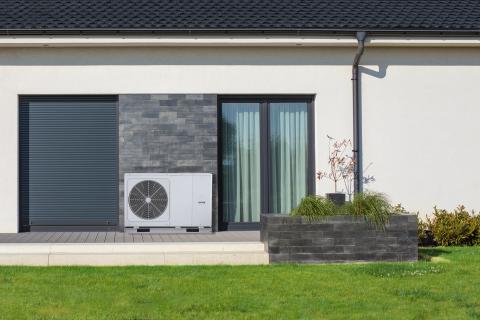Appliance standards delays costing Australians $3.4bn a year

Leveraging the National Energy Performance Strategy to unlock the transition to efficient electric homes
Key Takeaways:
The continued installation of gas and resistive electric appliances is locking Australian consumers into $3.4 billion in unnecessary costs each year.
Improving minimum energy performance standards for space heating, hot water and cooking appliances via the Greenhouse and Energy Minimum Standards (GEMS) Act under the National Energy Performance Strategy (NEPS) could mitigate these costs and help manage the electrification transition.
Improved standards could be complemented by other policies that make efficient electric appliances even more accessible and profitable to consumers.
23 April 2024 - (IEEFA Australia): Australians are racking up costs of $3.4 billion for every year we continue to install gas and inefficient electric appliances instead of efficient electric equivalents, according to the Institute for Energy Economics and Financial Analysis (IEEFA).
Fossil gas has historically provided a cheap source of energy for winter heating in regions like Victoria and the Australian Capital Territory (ACT), and gas appliances feature heavily in the household energy mix. Resistive electric appliances such as radiant heaters, electric storage water heaters and ceramic cooktops are also common in many states.
However, a new briefing note from IEEFA reveals that Australian households are locking in significant long-term costs by making like-for-like replacements when their space heating, hot water and cooking appliances reach their end of life. An estimated 940,000 new gas appliances and 800,000 new resistive electric appliances are installed each year across Australia. The briefing note, Appliance standards are key to driving the transition to efficient electric homes, shows that if heat pump-based electric appliances were installed instead, for each year the combined lifetime cost savings would amount to $3.4 billion.
Jay Gordon, IEEFA’s Energy Finance Analyst – Electricity and the briefing note’s author, says; “Several fundamental shifts are occurring in the way we use energy in the home. Gas no longer offers the cost advantage it once did, while modern electric appliances have advanced to the point where they use a fraction of the energy of either gas appliances or inefficient resistive electric appliances.
“Every year that Australian households continue to install new gas or resistive electric appliances, they are missing out on the opportunity to make significant savings on their energy bills.”
IEEFA argues that increasing minimum energy performance standards for household appliances could be a highly impactful way to ensure long-term cost savings for consumers. This would also help to enable a managed electrification transition by offsetting some or all of the new electricity demand from electrifying gas appliances.
Through its National Energy Performance Strategy (NEPS), the federal government has identified expansion and modernisation of the Greenhouse and Energy Minimum Standards (GEMS) Act as a priority. This presents a window of opportunity to embed changes in the Act that facilitate the transition to efficient electric appliances and mitigate these unnecessary costs to households.
“Improved standards should be enacted as soon as practicable, as the cost of delay amounts to $3.4 billion per year, in costs borne by Australian energy consumers,” says Gordon. “They could be supported by complementary policies that make efficient electric appliances accessible to as many consumers as possible, along with other energy performance solutions.”
Read the report: Appliance standards are key to driving the transition to efficient electric homes
Media contact: Amy Leiper [email protected] +61 (0) 414 643 446
About IEEFA: The Institute for Energy Economics and Financial Analysis (IEEFA) examines issues related to energy markets, trends, and policies. The Institute’s mission is to accelerate the transition to a diverse, sustainable and profitable energy economy. (ieefa.org)














